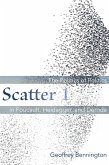The Historical Uncanny explores how certain memories become inscribed into the heritage of a country or region while others are suppressed or forgotten. In response to the erasure of historical memories that discomfit a public's self-understanding, this book proposes the historical uncanny as that which resists reification precisely because it cannot be assimilated to dominant discourses of commemoration.Focusing on the problems of representation and reception, the book explores memorials for two marginalized aspects of Holocaust: the Nazi euthanasia program directed against the mentally ill and disabled and the Fascist persecution of Slovenes, Croats, and Jews in and around Trieste. Reading these memorials together with literary and artistic texts, Knittel redefines "e;sites of memory"e; as assemblages of cultural artifacts and discourses that accumulate over time; they emerge as a physical and a cultural space that is continually redefined, rewritten, and re-presented.In bringing perspectives from disability studies and postcolonialism to the question of memory, Knittel unsettles our understanding of the Holocaust and its place in the culture of contemporary Europe.
Dieser Download kann aus rechtlichen Gründen nur mit Rechnungsadresse in A, B, BG, CY, CZ, D, DK, EW, E, FIN, F, GR, HR, H, IRL, I, LT, L, LR, M, NL, PL, P, R, S, SLO, SK ausgeliefert werden.









